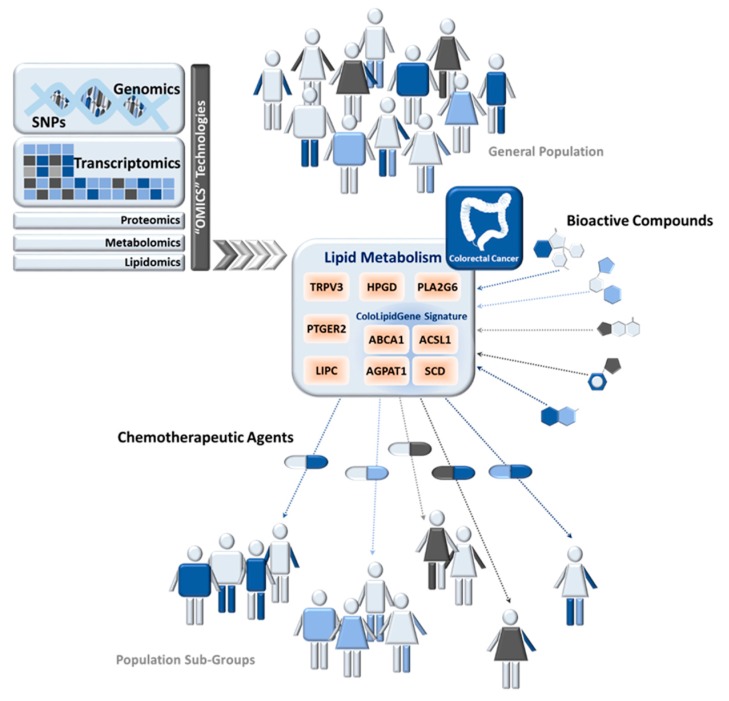Figure 2.
Modulation of Lipid Metabolism in Colorectal Cancer by Precision Nutrition Approaches. Genomics, transcriptomics, and other “omics” technologies have significantly contributed to the development of precision nutrition, which aims to identify patient subpopulations and design new targeted strategies for personalized treatment. Alterations in lipid metabolism have been implicated in cancer-metabolic progression. Examples of lipid-metabolic genes that have been interrogated for precision nutrition uses in colorectal cancer (CRC) are detailed. Bioactive compound could modulate lipid-metabolism-related gene expression. Their use together with classical chemotherapeutic agents, whose effect could be potentiated, is one of the current lines of research in CRC treatment. HPGD: hydroxyprostaglandin dehydrogenase 15-(NAD), PLA2G6: phospholipase A2 group VI, TRPV3: transient receptor potential vanilloid 3, PTGER2: prostaglandin E receptor 2, LIPC: hepatic triglyceride lipase, ACSL1: Acyl-CoA synthetase 1, ABCA1: ATP-Binding Cassette Subfamily-A Member 1, AGPAT1: 1-Acylglycerol-3-Phosphate O-Acyltransferase 1, SCD: Stearoyl-CoA-desaturase 1, SNPs: Single Nucleotide Polymorphisms.

